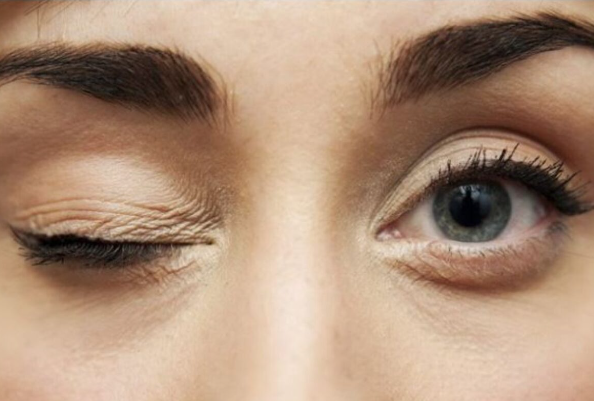Eye Twitching

Understanding Eye Twitching: Causes, Symptoms, and Treatments
Introduction
Eye twitching, medically known as myokymia, refers to involuntary, repetitive spasms or movements of the eyelid muscles. While usually harmless, it can be annoying and uncomfortable. Eye twitching typically affects the lower eyelid but can occur in the upper eyelid as well. In most cases, it resolves on its own after a few minutes or days.
Causes of Eye Twitching
- Stress:
- High levels of stress can trigger muscle spasms, including in the eyelids.
- Fatigue and Lack of Sleep:
- Not getting enough rest can lead to eye strain and twitching.
- Caffeine or Alcohol Intake:
- Excessive consumption of caffeine or alcohol can over-stimulate the nervous system, leading to eye twitching.
- Eye Strain:
- Spending too much time looking at screens, reading, or doing other activities that strain the eyes can lead to twitching.
- Dry Eyes:
- Dryness and irritation of the eyes, common in people who use computers for extended periods, wear contact lenses, or take certain medications, can trigger twitching.
- Nutritional Imbalance:
- Deficiencies in certain nutrients, such as magnesium, can lead to muscle spasms, including eye twitches.
- Allergies:
- Eye irritation caused by allergies can lead to twitching due to the release of histamines.
- Neurological Conditions (Rare):
- In very rare cases, chronic eye twitching may be a sign of a neurological disorder like hemifacial spasm or benign essential blepharospasm.
Symptoms of Eye Twitching
- Involuntary Eye Movements: Rapid, uncontrollable movements or spasms in the eyelid.
- Irritated Eyes: Twitching may be accompanied by a sensation of dry or tired eyes.
- Increased Frequency with Stress or Fatigue: Twitching often becomes more noticeable during periods of stress, fatigue, or strain.
Home Remedies and Lifestyle Changes for Eye Twitching
- Manage Stress:
- Practice relaxation techniques such as meditation, yoga, or deep breathing to reduce stress levels, which can help alleviate twitching.
- Get Adequate Sleep:
- Ensure you are getting 7-8 hours of quality sleep per night to prevent fatigue-related eye twitching.
- Limit Caffeine and Alcohol:
- Reduce your intake of caffeine (coffee, tea, energy drinks) and alcohol to prevent overstimulation of the nervous system.
- Take Breaks from Screens:
- Follow the 20-20-20 rule: every 20 minutes, look at something 20 feet away for 20 seconds to reduce eye strain.
- Use Artificial Tears:
- If dry eyes are contributing to the twitching, lubricating eye drops can provide relief by moisturizing and soothing the eyes.
- Warm Compress:
- Applying a warm, damp cloth to the eyes for a few minutes can relax the muscles around the eyes and reduce spasms.
- Improve Diet:
- Ensure you are getting enough magnesium through foods like leafy greens, nuts, and seeds, as deficiencies can contribute to muscle twitching.
Clinical Treatments for Eye Twitching
- Prescription Eyedrops:
- In cases where dryness or irritation is the primary cause, a doctor may prescribe stronger lubricating or anti-inflammatory eye drops.
- Botox Injections:
- For severe, chronic twitching (such as blepharospasm), Botox injections can be used to temporarily paralyze the muscles and stop the spasms.
- Medications:
- In rare cases of neurological conditions causing eye twitching, medications to control muscle spasms may be prescribed.
- Surgery (Rare Cases):
- In extreme cases of chronic twitching due to neurological disorders, surgery may be required to remove or relax the affected muscles.
Alternative/Non-Invasive Treatments for Eye Twitching
For eye twitching, the therapies offered by Earl Claytont Wellness Centre that may help alleviate the symptoms and support overall nerve health are:
- Vitamin B Complex:
- B vitamins, particularly B12 and B6, are essential for nerve health. Deficiencies in these vitamins can lead to muscle twitches, including eye twitching. A B Complex supplement can help reduce the frequency of eye twitching by supporting proper nerve function.
- PEMF (Pulsed Electromagnetic Field Therapy):
- PEMF therapy can help improve circulation, reduce muscle tension, and support nerve function. This may alleviate eye twitching, especially if it's caused by stress or muscle fatigue.
- NAD+ Therapy:
- NAD+ therapy can improve cellular energy production and support nerve function, potentially reducing eye twitching by enhancing overall neuromuscular health and reducing oxidative stress.
These therapies are likely to be effective in managing eye twitching by promoting nerve health, improving circulation, and reducing muscle tension.
Discover the perfect treatment for you with a FREE MEDICAL ASSESSMENT! Limited slots available – secure yours now by scheduling an appointment. Click below to book now!
When to Seek Medical Attention
- If twitching lasts for more than a few weeks, affects both eyes, or is accompanied by other symptoms like swelling, drooping eyelids, or facial twitching, it's important to consult a healthcare provider. Persistent or severe twitching could be a sign of an underlying condition that requires further evaluation.
Conclusion
Eye twitching is a common and typically benign condition that can be triggered by factors like stress, fatigue, and eye strain. Simple lifestyle adjustments, such as reducing stress and getting more sleep, often help resolve the problem. If symptoms persist or worsen, seeking medical advice is important to rule out any underlying issues.

